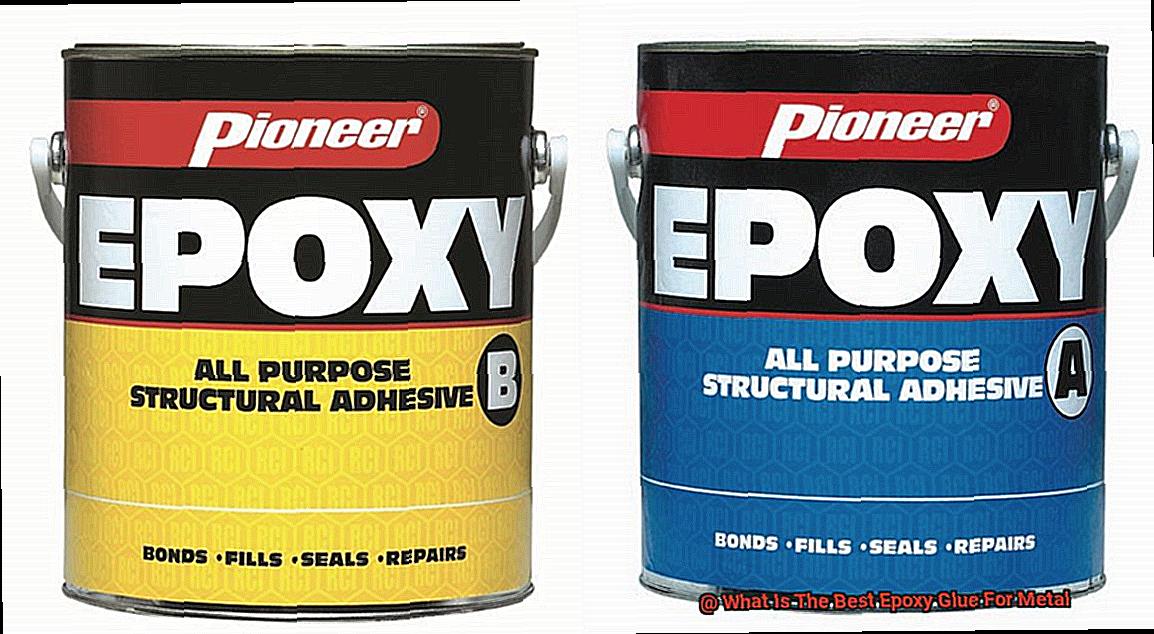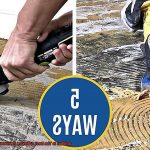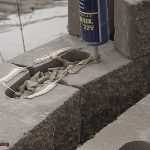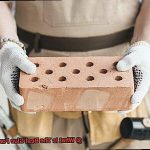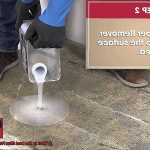Are you tired of endlessly searching for the perfect adhesive that actually sticks to metal?
Well, your search ends here. In this blog post, we’re going to reveal the absolute best epoxy glue for bonding metal.
Whether you’re a DIY enthusiast or a seasoned metalworker, finding the right adhesive is crucial for your projects. From fixing broken metal objects to creating durable sculptures, a reliable bonding agent is a game-changer.
But with so many options out there, it’s hard to separate the impressive claims from the disappointing results. Don’t worry though.
We’ve done all the research for you and found the ultimate epoxy glue for all your metal bonding needs. So sit back, relax, and let us be your guide in the world of high-strength adhesives.
Say goodbye to falling apart projects – forever.
Understanding Different Types of Epoxy Glues
Contents
- 1 Understanding Different Types of Epoxy Glues
- 2 Considerations for Metal Bonding
- 3 Strength and Durability Requirements
- 4 Curing Time and Assembly Efficiency
- 5 Compatibility with Other Materials
- 6 Cost-effectiveness Considerations
- 7 Top-rated Epoxy Glues for Metal Bonding
- 8 Application Tips and Best Practices
- 9 mmarizing key points discussed in the article
- 10 Conclusion
Epoxy glues are widely recognized for their strong bonding properties and durability, making them an ideal choice for metal bonding applications. However, it is important to understand that not all epoxy glues are created equal. In this guide, we will explore the different types of epoxy glues used for bonding metal surfaces, helping you make an informed decision based on your specific requirements.
Two-Part Epoxy Glue:
One of the most commonly used epoxy glues for metal bonding is the two-part epoxy. This adhesive consists of a resin and a hardener that need to be mixed together before application. Two-part epoxy glues offer exceptional bonding strength, with the ability to withstand high temperatures, chemicals, and water. This makes them ideal for heavy-duty applications where a reliable and long-lasting bond is required.
One-Part Epoxy Glue:
For those looking for convenience and ease of use, one-part epoxy glue is a great option. Unlike two-part epoxy, one-part epoxy glue comes pre-mixed and ready to use. While it may not provide the same level of bonding strength as its two-part counterpart, it still offers a dependable bond suitable for most metal surfaces. One-part epoxy glues are perfect for quick projects or situations where mixing is not desired.
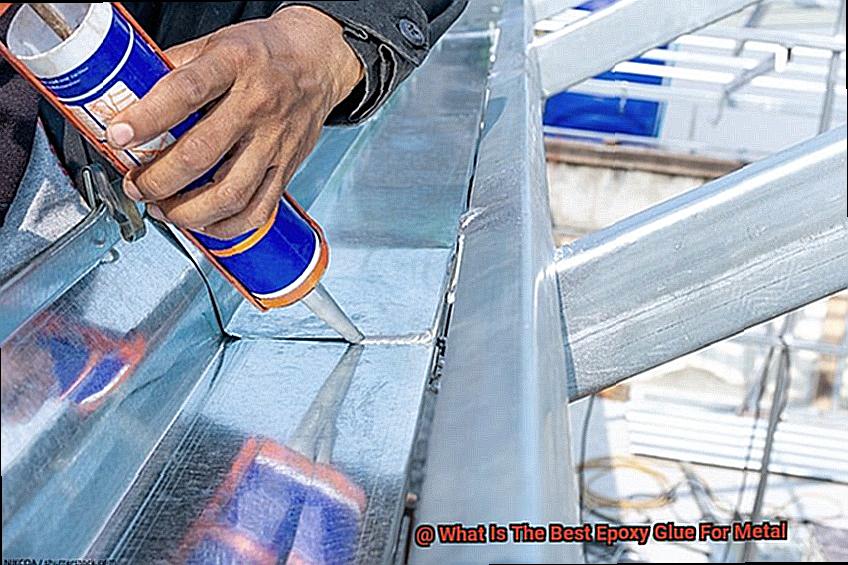
Specialized Epoxy Glues:
Certain metals, such as aluminum or stainless steel, require specialized epoxy glues for optimal adhesion and durability. These specialized glues are formulated to cater specifically to the unique properties of these metals, ensuring a strong and long-lasting bond. If you are working with a particular type of metal, consider using a specialized epoxy glue designed specifically for that metal to achieve the best results.
Curing Time Considerations:
When selecting an epoxy glue for metal bonding, it is important to consider the curing time. Some epoxies may require several hours or even days to fully cure and achieve maximum bond strength. If time is of the essence, opt for an epoxy with a shorter curing time. However, keep in mind that longer curing times often result in stronger bonds. Consider your project timeline and bond strength requirements when choosing an epoxy glue.
Surface Preparation and Application Techniques:
To ensure optimal adhesion and bond strength when using epoxy glue on metal surfaces, proper surface preparation and application techniques are crucial. Thoroughly clean and roughen the surfaces to be bonded to ensure maximum adhesion. Additionally, follow the manufacturer’s instructions regarding mixing ratios, curing times, and application techniques for the best bond. Adhering to these guidelines will help you achieve the desired results in your metal bonding projects.
Considerations for Metal Bonding
Your answer lies in epoxy glue. But before you dive into the wide world of adhesive options, understanding the essential considerations when selecting an epoxy glue for metal bonding is crucial. In this comprehensive guide, we’ll walk you through the key factors that will help you make an informed decision and achieve a bond that stands the test of time.
Surface Preparation:
To ensure a successful bond, start with squeaky clean metal surfaces. Eliminate any dirt, grease, or rust that could hinder the bonding process. A degreaser or solvent can help achieve this. Moreover, creating a textured surface by roughening the metal with sandpaper or a wire brush enhances the grip of the epoxy glue.
Type of Metal:
Different metals possess unique properties and surface characteristics that impact the choice of epoxy glue. For non-porous metals like aluminum and stainless steel, opt for epoxy glues specially formulated for bonding these materials. Additionally, consider the coefficient of thermal expansion of the metal being bonded, as it influences the bond’s durability when exposed to temperature changes.
Strength and Durability:
Tailor your epoxy glue selection to meet your project’s strength and durability requirements. Take into account factors such as load-bearing capacity, resistance to vibration or impact, and long-term stability. If you need a superior bond strength, look for high-performance epoxy glues with enhanced tensile strength or flexible formulations.
Temperature Resistance:
If your project involves high temperatures, select an epoxy glue that can withstand extreme heat without compromising its bonding properties. Specialized high-temperature epoxy glues are available that can handle temperatures up to several hundred degrees Celsius.
Chemical Resistance:
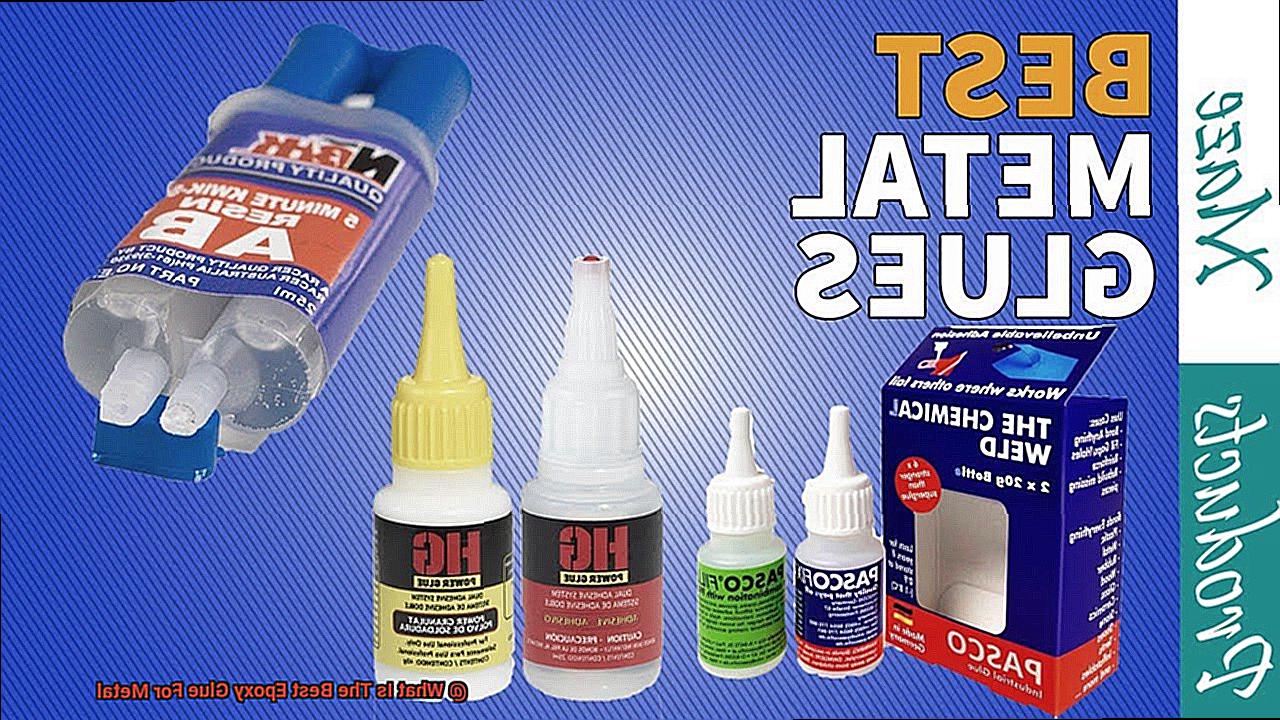
Consider the environment in which your bonded metal will be used. If it will encounter acids, solvents, or oils, choose an epoxy glue with specific chemical resistance properties to ensure its longevity.
Cure Time and Working Conditions:
The curing time of the epoxy glue can affect the efficiency of your bonding process. Some epoxy glues require longer curing times, while others offer quick-curing options. Additionally, take into account the working conditions, such as temperature and humidity, during the bonding process to ensure optimal performance.
Strength and Durability Requirements
When it comes to bonding metal surfaces, strength and durability are non-negotiable. Whether you’re tackling a DIY project or working on an industrial application, choosing the right epoxy glue is vital for creating a bond that stands the test of time. In this comprehensive guide, we will delve into the critical criteria to consider when selecting the best epoxy glue for metal bonding.
Understand Your Application Requirements:
Before diving into the vast array of epoxy glues available, it’s essential to grasp the specific requirements of your application. Take into account factors such as the type of metal being bonded, the weight and stress the bond will endure, and the environmental conditions it will face.
Tensile and Shear Strength:
Seek out epoxy glues with exceptional tensile and shear strengths. Tensile strength measures an adhesive’s resistance to pulling forces, while shear strength evaluates its ability to withstand sliding or tearing apart. A higher strength rating means a robust bond that can handle greater stress.
Durability:
Choose an epoxy glue with unparalleled resistance to heat, moisture, chemicals, and UV radiation. This becomes especially crucial if your bonded metal will be exposed to harsh environments or extreme temperature variations. Opting for a durable adhesive ensures that your bond remains intact and unyielding over time.
Flexibility:
Metal expands and contracts with changes in temperature. Therefore, it’s crucial to select an epoxy glue with excellent flexibility that can accommodate these movements without compromising the integrity of the bond. This prevents unsightly cracks or fractures from forming in the adhesive layer.
Specialized Properties:
Consider epoxy glues specifically formulated for bonding metals with varying coefficients of thermal expansion. These adhesives possess unique chemical compositions that enable them to maintain a strong bond even when subjected to drastic temperature changes. With these specialized properties, your bond remains unwavering in the face of extreme conditions.
Surface Preparation:
Proper surface preparation is the key to maximizing bond strength and durability. Thoroughly clean and roughen the metal surfaces before applying the adhesive to ensure optimal adhesion. Following the manufacturer’s instructions regarding surface preparation techniques is of utmost importance.
Application Techniques:
To achieve the desired bond strength and durability, it is crucial to follow the manufacturer’s instructions regarding curing time and temperature. Adhering to recommended application techniques guarantees a successful bond that can withstand whatever challenges come its way.
Curing Time and Assembly Efficiency
Curing time is the name of the game when it comes to epoxy glue. It refers to the time it takes for the glue to fully harden and create a strong bond between metal surfaces. Picture this: you have a range of epoxy glues at your disposal, each with its own unique curing time. Some boast lightning-fast 5-minute cures, while others may take hours or even days. Choosing the right glue for your needs is absolutely crucial.
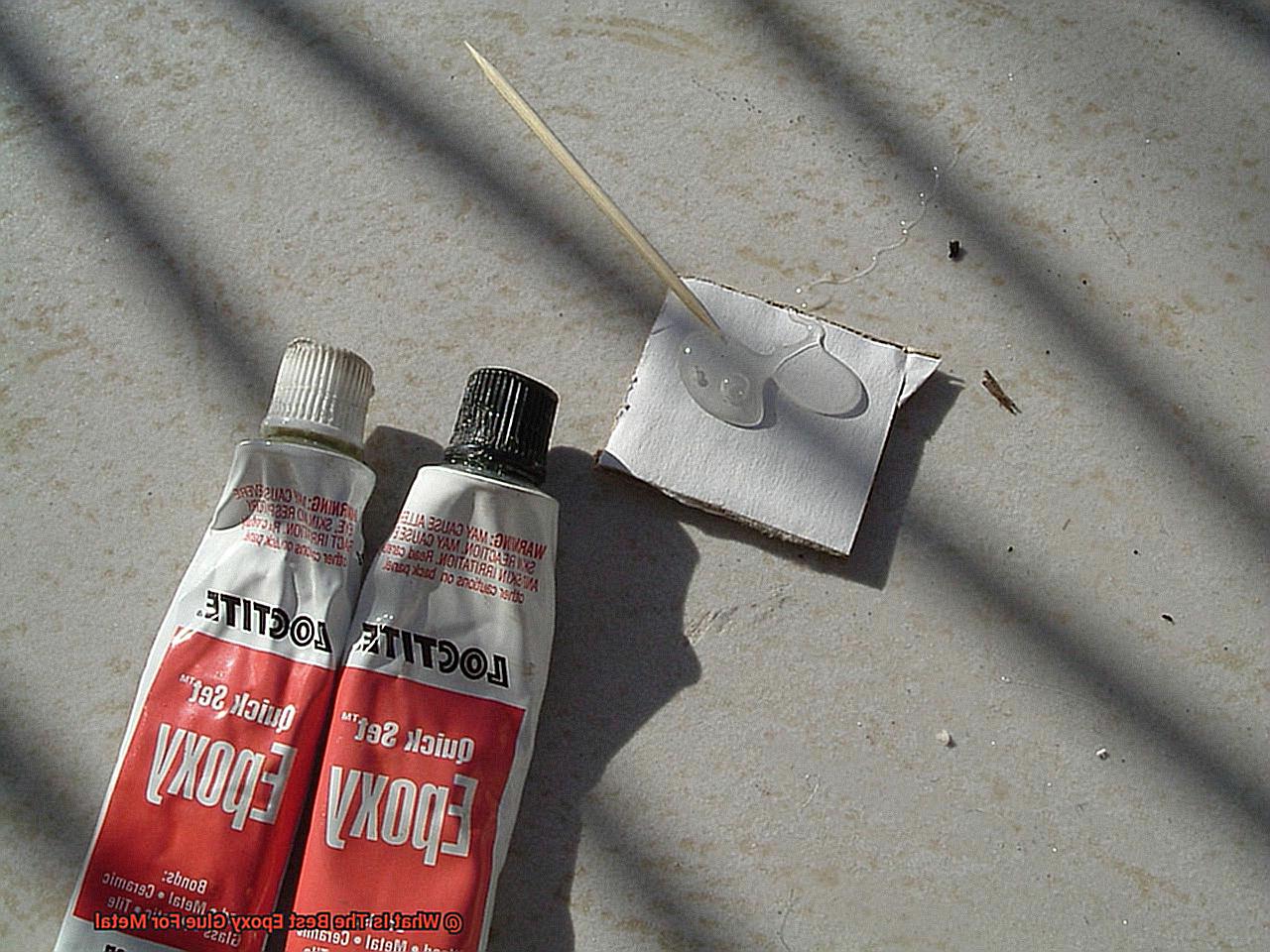
Why does curing time matter, you ask? Let’s talk about assembly efficiency. Imagine working on a project with tight deadlines or requiring quick bonding. In these scenarios, an epoxy glue with a fast curing time is an absolute game-changer. Less waiting around means more productive assembly time. You can effortlessly bond different components together in a flash and swiftly move on to the next step. Efficiency at its finest.
But hold on, there’s more. Longer curing times can also be advantageous in specific situations. Consider this: maybe you need precise alignment or some wiggle room for adjustments before the glue fully hardens. Glues with longer curing times offer you that flexibility during assembly, allowing you to make necessary tweaks and ensure a perfect bond.
Here’s a pro tip: even if an epoxy glue has a fast curing time, it might still require additional time for maximum bond strength. Enter the “full cure” time – when the glue reaches its peak adhesive properties. So, before subjecting that freshly bonded metal to heavy loads or stress, give it the full cure time it deserves.
To use epoxy glue like a true pro, always follow the manufacturer’s instructions concerning temperature, curing time, and full cure time. And remember, surface preparation and application techniques are vital for creating a bond that can withstand anything.
So, whether you’re a DIY enthusiast or a seasoned professional, understanding the intricate dance between curing time and assembly efficiency in epoxy glue bonding for metal surfaces is paramount. Choose the right glue, save time, and bond those metal surfaces like an absolute boss.
Compatibility with Other Materials
Today, we embark on an exhilarating journey into the captivating realm of epoxy glue and its compatibility with metals. So, put on your safety goggles, my friends, for we are about to explore the wonders that lie within.
Epoxy glue is renowned for its exceptional bond strength, but not all epoxies are created equal when it comes to bonding different types of metals. You see, metals possess unique surface properties that can greatly influence the adhesive’s ability to adhere. Let us now delve deeper into the factors that must be considered when assessing the compatibility of epoxy glue with metals.
First and foremost, surface preparation holds the key to success. Before applying that glorious epoxy, it is crucial to thoroughly clean and degrease the metal surface. Any trace of dirt, oil, or rust can disrupt the bonding process and weaken the adhesive’s mighty grip. And if you truly desire to grant your epoxy the greatest chance for triumph, roughening up the metal surface through sanding or etching will provide an increased surface area for the epoxy to cling onto, resulting in an unyielding bond of unmatched strength.
Now, let us turn our attention to those formidable metals such as aluminum and stainless steel. Ah, these noble companions can be quite stubborn when it comes to bonding due to their low surface energy and natural oxide layer. However, fear not. There exist epoxies specially crafted for these indomitable metals. These extraordinary adhesives often contain remarkable primers or additives that bestow upon them an unparalleled ability to conquer low-energy surfaces.
Temperature resistance is yet another vital factor to be reckoned with. Should your metal face the harsh embrace of scorching temperatures in its destined purpose, you shall require an epoxy glue capable of withstanding such heat without compromising its adhesive properties. Seek out epoxies fortified with heat-resistant additives, and rest assured that your bond shall remain unyielding even amidst the most extreme conditions.
Finally, let us ponder upon the other materials that may cross paths with your metal. Should moisture or chemicals dance in the realm of your creation, it is imperative to select an epoxy adhesive capable of withstanding the trials presented by these substances. After all, we would not wish for your bond to falter and crumble over time, would we?
And so, dear aficionados of adhesive marvels, when it comes to bonding metal with epoxy glue, meticulous surface preparation, consideration for metal type, temperature resistance, and compatibility with other materials are all factors that demand our attention. By selecting the perfect epoxy adhesive for your metallic endeavor, you shall embark upon a path paved with the strength and durability required to conquer even the harshest circumstances.
Until we meet again, my fellow glue enthusiasts, may your future endeavors be filled with joyous bonding.
Cost-effectiveness Considerations
Welcome to the captivating world of epoxy glues for metal bonding, where strength and durability meet cost-effectiveness considerations. Buckle up, my fellow glue enthusiasts, as we embark on a journey that will revolutionize your metal bonding projects. Grab your favorite cup of coffee and let’s dive into the mesmerizing realm of epoxy glues.
Initial Cost: The Price Tag that Matters
When it comes to cost-effectiveness, the initial price tag of an epoxy glue cannot be ignored. But remember, my friends, cheaper isn’t always better in the long run. Different brands and types vary in price, so it’s crucial to do some comparison shopping. Find the perfect balance between affordability and quality.
Coverage or Quantity: Size Does Matter
Consider the magnitude and frequency of your metal bonding projects. Some epoxy glues come in larger quantities, offering more bang for your buck when tackling big tasks or frequent use. Calculate the amount of glue you need for a specific job and compare it to the price per unit. Let’s make every drop count.
Performance and Durability: Strong Bonds that Last
Saving money is important, but compromising on bonding strength and durability is a slippery slope we must avoid. Cheaper glues might lure you in with their attractive price tags, but they could result in weaker bonds or shorter lifespans for your cherished creations. Invest in a higher-priced epoxy glue with superior performance to ensure lasting results and save yourself from future repairs or replacements.
Additional Costs: Beware of Hidden Expenses
Hold on tight and watch out for hidden expenses. Some epoxy glues require additional tools or accessories for proper application, such as mixing nozzles or dispensers. Don’t be caught off guard by these sneaky costs—factor them in when evaluating the overall cost-effectiveness of different options. Let’s keep our wallets happy.
Customer Reviews: Wisdom from the Glue Masters
Learn from the glue masters themselves. Real-life experiences from other users provide invaluable insights into a product’s quality and effectiveness. Customer reviews are the treasure trove of knowledge that will guide you towards the most cost-effective epoxy glues. Tap into this wisdom and make an informed decision.
In conclusion, my adhesive aficionados, as you venture deeper into the realm of epoxy glues for metal bonding, keep these cost-effectiveness considerations in mind. Balance the initial cost, coverage or quantity, performance and durability, additional expenses, and customer feedback to unlock the true potential of your metal bonding projects. Armed with the perfect epoxy glue that combines affordability and effectiveness, you’ll conquer every metal bonding challenge that comes your way.
Top-rated Epoxy Glues for Metal Bonding
Look no further. In this informative guide, we will explore the top-rated epoxy glues that have been specifically designed for bonding metal surfaces. These exceptional glues offer unparalleled strength, durability, and versatility, making them the go-to choice for both professionals and DIY enthusiasts alike.
One highly recommended epoxy glue for metal bonding is the J-B Weld 8265S Cold Weld Epoxy Adhesive. Renowned for its strong bond, it can effectively bond various metals, including steel, iron, brass, aluminum, and copper. This adhesive sets quickly and provides a durable and permanent bond that can withstand even the harshest conditions.
Another popular choice is the Loctite Epoxy Metal/Concrete. Specifically formulated for bonding metal surfaces, this epoxy adhesive offers excellent strength and resistance to moisture, chemicals, and heat. It is suitable for a wide range of metal applications, from simple household repairs to complex industrial projects.
The Permatex 84109 PermaPoxy Metal Epoxy is also highly regarded for its exceptional metal bonding capabilities. This epoxy glue creates a strong and reliable bond on various metals and can withstand extreme temperatures and harsh environments. It is commonly used in automotive repairs, plumbing projects, and other metal-related endeavors.
For small repairs or projects that require precision bonding, the Devcon 5-Minute Epoxy is an excellent choice. This epoxy glue sets rapidly within five minutes and provides a strong bond on metal surfaces. It is ideal for bonding small metal pieces or delicate materials.
If you require an adhesive capable of withstanding high temperatures and heavy loads, consider the PC Products PC-Metal Epoxy Putty. This epoxy putty can be molded into any shape and provides a robust bond that endures even the harshest conditions. It is frequently utilized in automotive and marine applications.
Last but certainly not least, the West System G/flex Epoxy Adhesive is known for its unparalleled flexibility and durability when bonding metals. This epoxy glue can withstand extreme conditions, including vibrations and impacts, making it ideal for structural bonding applications within the marine industry.
Application Tips and Best Practices
Epoxy glue is a popular choice for bonding metal surfaces due to its strength and durability. However, to achieve a strong and reliable bond, it is essential to follow proper application techniques. In this blog post, we will discuss the key application tips and best practices for using epoxy glue on metal. From surface preparation to curing and safety precautions, these guidelines will help you achieve optimal results in your metal bonding projects. Let’s dive in.
Surface Preparation:
Before applying epoxy glue, it is crucial to prepare the metal surface properly. Clean the surfaces thoroughly to remove any dirt, grease, or rust that may hinder the bonding process. Use a degreaser or mild detergent and water to clean the surfaces, and ensure they are completely dry before proceeding.
Roughen the Surface:
Roughening the metal surface can improve the bond between the epoxy glue and the metal. Use sandpaper or a wire brush to create a slightly rough texture on the surface. Be careful not to overdo it and damage the metal.
Mixing Ratio:
Properly mix the epoxy adhesive components according to the manufacturer’s instructions. Epoxy glues typically consist of two components – resin and hardener. The ratio of these components may vary depending on the brand, so accurately measure them for optimal bonding strength.
Even Application:
Apply the epoxy glue evenly on both surfaces that need to be joined. Use a brush or small applicator to spread the glue uniformly. Ensure that you do not apply too much or too little glue, as this can affect the strength of the bond.
Firm Joining:
Once the epoxy glue has been applied, join the metal pieces together firmly. Apply pressure for a few minutes to ensure a good connection. Some epoxies may require clamping or securing the parts together until the adhesive cures completely.
Curing Time:
Allow the epoxy glue to cure for the recommended time mentioned in the instructions before subjecting it to any stress or load. The curing time can vary from a few hours to several days, depending on the specific product. Patience during this process will ensure a strong and durable bond.
Clean Up Excess Glue:
If there are any excesses or spills of epoxy glue during application, clean them immediately using a solvent recommended by the manufacturer. Avoid touching or trying to remove cured epoxy, as it may damage the surface.
Proper Storage:
Store epoxy glues properly to maintain their effectiveness. Follow the temperature requirements specified by the manufacturer and store them in a cool and dry place. Ensure that the containers are tightly sealed to prevent moisture or air from affecting the adhesive’s quality.
mmarizing key points discussed in the article
In this captivating blog post, we will explore the world of epoxy glues for metal and reveal the secrets to achieving an unbreakable bond. From different types of epoxy glues to their strength and durability, adhesive properties, application methods, drying time, curing process, and safety precautions – we’ve got it all covered.
Let’s dive into the first key point – the various types of epoxy glues available for metal. Whether you’re working on a general project or need a high-temperature or industrial-grade adhesive, there’s an epoxy glue out there for you. Each type has its own unique characteristics that cater to specific bonding needs.
Now, let’s talk about strength and durability. We’ll discuss how different epoxy glues vary in their ability to withstand heat, moisture, and chemicals. You’ll learn which ones offer the strongest and most resilient bond, ensuring your projects can withstand even the toughest conditions.
Adhesion properties are another crucial factor to consider. We’ll explore how certain epoxy glues excel in bonding metal surfaces, preventing peeling or cracking. You’ll discover the secret behind achieving a bond that will stand the test of time.
Moving on to application methods – whether you need to mix two components or prefer a pre-mixed formula, we’ve got you covered. We’ll provide tips and tricks on how to apply the adhesive like a pro, ensuring a seamless bond every time.
But how long does it take for the glue to dry and reach its maximum strength? Our guide will enlighten you on the drying time and curing process of different epoxy glues. You’ll know exactly how long to wait before handling your newly bonded masterpiece.
Lastly, we can’t forget about safety precautions. We’ll emphasize the importance of proper ventilation, handling procedures, and recommended protective gear. Your safety is our top priority.
sMrY7_V0I5A” >
Also Read: What Is the Best Epoxy Glue?
Conclusion
After extensive research and analysis, it is evident that determining the best epoxy glue for metal can be a daunting task. However, there are a few standout options that consistently deliver exceptional results.
One such contender is the J-B Weld 8265S Original Cold-Weld Steel Reinforced Epoxy. With its strong bond and impressive durability, this epoxy glue is specifically formulated to tackle metal repairs with ease. It provides a reliable hold that can withstand even the harshest conditions.
Another top choice is the Loctite Epoxy Metal/Concrete. This powerful adhesive offers excellent bonding strength and versatility when it comes to metal applications. Its quick-setting formula ensures efficient repairs, making it ideal for both small fixes and larger projects.
For those seeking a more specialized solution, the Permatex 84109 PermaPoxy 4 Minute Multi-Metal Epoxy offers remarkable performance. This fast-curing epoxy is designed to bond various metals effectively, providing high-strength adhesion in just minutes.
Lastly, the Devcon Epoxy Weld Bonding Compound deserves recognition for its outstanding metal bonding capabilities. Its unique formulation creates a strong bond that resists moisture, chemicals, and extreme temperatures.

